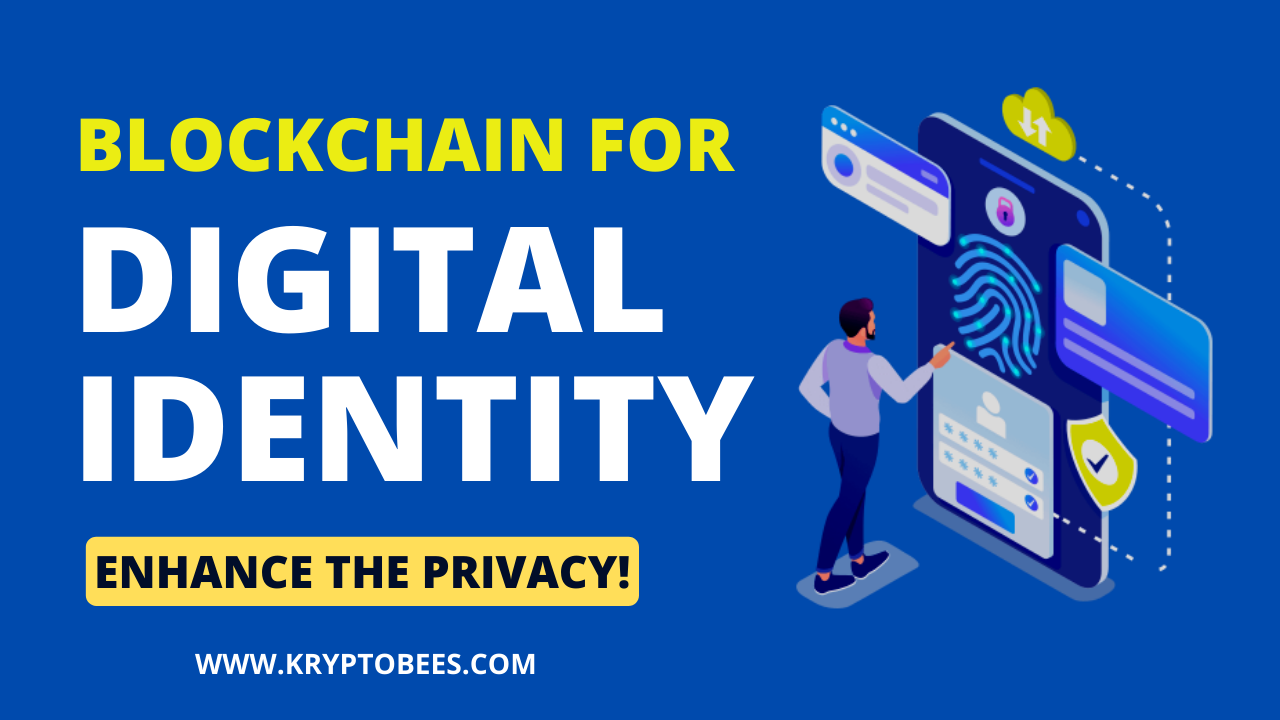Blockchain Identity Management Solutions: Empowering Secure and Decentralized Digital Identities

In the modern era of technology, ensuring trustworthy identity verification has become indispensable. Whether it’s using financial services or engaging on online platforms, individuals need to establish their identity securely. Conventional methods often fall short, leading to problems like fraud and data breaches. Blockchain identity technology, with its decentralized and unalterable features, is emerging as a potential remedy. It has the potential to reshape digital identity management, addressing issues and fostering trust in the virtual landscape. This identity management solutions with blockchain technology will pave a new way for identity management.
Identity Management | What is it?
Identity management, also referred to as IAM (Identity and Access Management), encompasses the processes and technological strides within an organization for recognizing, verifying, and granting access to various services or systems, both within the organization and beyond. Blockchain-based identity management has been challenging since the inception of the Internet. In the digital age, the imperative for blockchain-backed identity systems becomes evident, prioritizing security, privacy, and usability.
While physical realms rely on imperfect identification methods like IDs, licenses, and passports, a parallel structure for safeguarding online and digital identities is lacking. With online identities transcending borders, a global authority for digital identity authentication is imperative, given the absence of a comprehensive institution managing this process.
Blockchain technology presents a potential remedy, eliminating the need for a central authority. It allows for streamlined management of individual blockchain identities, granting greater control over data access.
By merging decentralized identity and blockchain verification, a digital watermark-like ID could be assigned to each online transaction. This innovative approach can enable real-time transaction verification, curbing fraud. Users’ could authenticate through a blockchain app, bypassing traditional username and password systems. Expertise in blockchain development allows for tailored solutions, offering diverse services for identity management and bolstering transaction security.
What can Blockchain technology do for Digital Identity?
The digital realm’s constant evolution, impacting everything from shopping to socializing, has reshaped our lives. Identity management, a longstanding concern since the Internet’s inception, has prompted substantial investments in security, privacy, and usability, totaling billions of dollars. Anticipated to reach $14.82 billion by 2021, the identity and access management market’s growth underscores its significance. Despite substantial investment, digital blockchain identity management remains encumbered by challenges: Cumbersome, Costly, and Challenging. Given today’s data-centric landscape, digital identity’s pivotal role in business and social interactions is undeniable.
It regulates user interactions online, yet conventional identity systems remain exposed, vulnerable to breaches seeking valuable data. While companies emphasize cybersecurity and compliance, customer experience is disproportionately affected due to these weak points.
As individuals, we bear the responsibility of juggling numerous online IDs, passwords, and various documents like passports, licenses, and medical insurance cards.
Beneficial factors of Identity Management solutions with blockchain technology
Data protection – People maintain their own data, thereby rendering it increasingly difficult for intruders to access an enormous amount of data instantaneously.
Rapid authentication and confirmation processes – Blockchain expedites identity verification by employing cryptography, ensuring data validity. Verifiers can promptly authenticate credentials without contacting issuers, enhancing the process’s speed and reliability.
Substantially minimise costs – Verification costs decrease significantly with blockchain, as cryptography ensures instant and issuer-independent authenticity checks. This reduction in staff and resources brings about substantial cost savings.
Preventing identity theft – With digital decentralized identifiers (DIDs), owners can cryptographically establish ownership and control over their data. Fraudsters exploit inconspicuous transaction trails, both internal and external, for personal gain within organizations.
Creates a record-trail that can be audited – Through cryptographic digital signatures, issuers secure Verifiable Credentials, ensuring their integrity. Blockchain-verifiable public DIDs enhance data accountability, making falsification impossible and strengthening credibility.
Visibility of data automation – The network automatically disseminates verified information to stakeholders, serving as a trusted, blockchain-maintained singular truth source.
Assists with legal data compliance – By empowering individuals to govern their data and necessitating explicit consent for data sharing, blockchain identity management streamlines privacy regulation adherence, including GDPR and CCPA, for organizations in a simpler, cost-effective manner.
Increases identification accessibility – Blockchain technology can provide individuals, even in underserved regions, a portable and verifiable identity through mobile apps, capitalizing on widespread mobile phone accessibility and empowering mobility.
Examples of Blockchain Identity Management
Reliable identity confirmation – Utilizing blockchain, digital identity systems swiftly and securely validate individual identities and credentials, enabling tasks like bank account setup and government service access. Blockchain-based identity verification enhances security by removing central third-party verifiers, effectively curbing identity fraud and theft risks.
Medical Records – Individuals can establish and oversee their digital identity, while medical professionals securely authenticate patient records and medical backgrounds. This advances healthcare quality while upholding data privacy and security standards.
Supply Chain Management – Leveraging blockchain, digital identities have potential in overseeing supply chain data, boosting transparency and safety. Products equipped with digital identities allow supply chain managers to monitor movement, bolstering authenticity and deterring fraud in the process.
Some Use Cases for Blockchain Identity Management
Blockchain technology’s prevailing and prosperous domain is presently in the realm of digital currency. The Bitcoin wave, born in 2008, has since maintained uninterrupted functionality. By October 27, 2017, a solitary Bitcoin commanded around $5,860, while the network’s market cap peaked at $96 billion. Bitcoin’s success emanates from its rapidity, anonymity, absence of intermediaries, and immunity to obstruction, in stark contrast to the account freezing potential of conventional banks. In exploring novel blockchain applications for identity, let’s examine potentially transformative prospects beyond the financial scope, assessing their groundbreaking potential.
Self-Sovereign Identity [SSI]
Leveraging the secure distributed ledger attributes of blockchain, a promising prospect emerges: enabling users to hold dominion over their identities, thus attaining absolute authority. Empowering users with this control could potentially resolve contemporary identity predicaments. A notable shift entails the eradication of identity proliferation, negating concerns around privacy infringement and identity misappropriation.
Numerous initiatives are actively testing the feasibility of this concept. A case in point is the Illinois Blockchain Initiative (IBI), a coalition of state and county bodies, which launched a pilot program on August 31, 2017. This initiative aims to digitize birth certificates via blockchain, advocating for “self-sovereign” digital identities. Such identities empower users with control, enabling swift and secure validation without dependency on a central repository.
Smart Contracts with blockchain identity management Solutions
Modern websites mask outdated processes behind their digital veneer. Blockchain’s decentralized ledger could transform online operations with identity-centric smart contracts, inducing a revolutionary shift.
Known as self-executing contracts, they convert to code, residing and duplicating in the blockchain, catalyzing the industry’s transition to automated software-defined contracts, bypassing human intervention.
At the forefront is Delaware, housing a majority of Fortune 500 powerhouses. The state spearheads blockchain’s integration to streamline corporate operations, revitalizing company registration, share monitoring, and shareholder engagement in the digital sphere. “Distributed ledger shares” promise rapid processing, while blockchain’s adoption also targets proxy voting, augmenting stakeholder control by sidelining third-party influence.
Identity for IoT
Identity extends beyond individuals. Emerging IoT devices (with asset identity) and services (with service identity) necessitate meticulous identity management, enabling novel workflows previously unattainable. For instance,
Illustration: IoT-to-IoT interactions, like a self-driving car autonomously settling fuel costs at a pump or charging station via its asset identity. Blockchain’s smart contracts could potentially automate charges for the rental company or owner.
The capability of blockchain to automate and ensure transaction integrity through secure shared ledgers and smart contracts opens avenues for innovative applications previously unattainable.
Conclusion
In today’s global landscape, digital identity has evolved into an integral aspect of people’s social and economic well-being, offering access to voting rights, education, and financial services. Yet, existing identity systems face challenges, underscoring the need for reform. Enter’s Blockchain Identity Management solution, a transformative potential for digital identity management. Blockchain projects offer a promising framework, uniting digital identities from various platforms into one controlled and owned digital identity.
This Blockchain Identity Management technology boasts advantages, including heightened data security, swift verification, fraud prevention, traceable records, legal compliance facilitation, and expanded identity accessibility. In essence, blockchain identity management holds the key to revolutionizing the way we manage and utilize identity management solutions with blockchain technology.
 Discuss Project!
Discuss Project!
